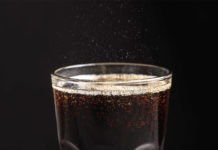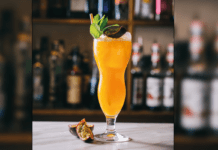A well-informed team can educate consumers on sugar levy

IN less than two months, the Soft Drinks Industry Levy – the so-called sugar tax – will come into effect.
The measure, which was first announced in the UK government’s 2016 Budget, comes into play on April 6 and will see soft drinks producers pay an additional levy on non-alcoholic beverages containing added sugar over specific quantities per 100ml.
Chancellor Phillip Hammond has confirmed there will be two bands: non-alcoholic drinks containing added sugar at a quantity of five to eight grams per 100ml, and eight grams or greater per 100ml, which will face a levy of 18p and 24p per litre respectively.
Ahead of the implementation of the tax, many soft drinks producers have reformulated their products to bring them below the threshold; while milk-based drinks and alcohol substitute drinks, such as low and no-alcohol beer, will be unaffected by the new legislation.
With the levy now just weeks away, soft drinks firms say it’s crucial bar staff are aware of the changes.
Adrian Troy of AG Barr, which recently hit the headlines after halving the sugar content of its regular Irn-Bru, said staff “should be aware of the sugar levels in the drinks that they are serving to give customers confidence that their needs and preferences have been considered”.
This was echoed by Paul Bendit of Folkington’s – which produces a range of fruit juices and mixers – who told SLTN: “Licensees will need to explain the benefits of a fruit juice over a sugar-fuelled soft drink – not just in terms of the lower cost, but the health benefits too.”
Steve Perez of Global Brands-owned soft drinks firm Franklin & Sons took a similar stance. He said staff should be able to answer any questions customers may have regarding the tax.
“The sugar levy is likely to draw attention to the ingredients in products, so staff must be able to answer queries on this topic,” he said.
“Helpful staff will be able to identify which drinks have changed recipe because of the tax, as well as which have replaced natural sugars with artificial alternatives.”
It’s therefore also an ideal time to point customers in the direction of drinks which contain 100% natural ingredients, said Bendit of Folkington’s, who said even basic knowledge “will enable upselling to take place with confidence”.
Rob Harris of Coca-Cola European Partners (CCEP) said: “It is key that publicans provide staff training so that employees can help consumers understand the choices available to them.
“For example, when a guest asks for a Coke, a member of staff should ask whether they want a regular or zero-sugar Coke.”
Harris of CCEP reckons the new legislation is indicative of a changing consumer mood to sugary drinks, with many now actively seeking lower and/or no-sugar alternatives.
Therefore, it could be an apt time for licensees to undertake a soft drinks range review.
Paul Bendit of Folkington’s said a soft drinks review “is critical to ensure that customers get the best and healthiest products at the most affordable prices”.
“Non-alcoholic drinks used to be the poor relation behind the bar; now they are centre stage as consumers are more health and alcohol aware,” added Bendit.
Harris at CCEP agreed. He said: “The introduction of the soft drinks tax comes at a time that health conscious consumers are demanding more low and zero-sugar options to choose from.”
“With that in mind, licensees should focus on getting their range right by offering a larger number of low and zero-sugar soft drinks as well as zero-sugar variants of their best-selling soft drink lines.”
Claire Rennie of craft soda firm Summerhouse Drinks reinforced this view, adding that the incoming sugar levy “provides a great opportunity to initiate a range and supplier review”.
If and when undertaking a range refresh in light of the levy, Weston of Frobishers Juices said operators “need to consider both the types of customers that purchase their soft drinks, be they children or adults, and the many occasions that influence their purchasing decision”.
“With drinks above the sugar threshold liable to go up in price once the sugar levy is implemented, it is those that continue to offer superior taste profiles and quality that I feel customers will continue to seek out and be happy to pay that little bit more for,” said Weston.
[box style=”4″]
The sugar levy at a glance
1. There will be two main thresholds to the sugar levy, which comes into effect from April 6, 2018. Non-alcoholic drinks containing added sugar at a quantity of five to eight grams per 100ml, and eight grams or greater per 100ml, will face a levy of 18p and 24p per litre respectively.
2. Not all drinks will be affected by the levy. Milk-based drinks and alcohol substitute drinks – such as low and no-alcohol beer – will not be affected by the incoming legislation.
3. Several major drinks producers have been reformulating recipes of a number of their products ahead of the levy.
4. The levy is expected to raise £385 million a year. Soft drinks firms which reformulate can avoid paying more tax; and they don’t have to pass the cost of the tax on to consumers.
– Supplied by UK government
[/box]























